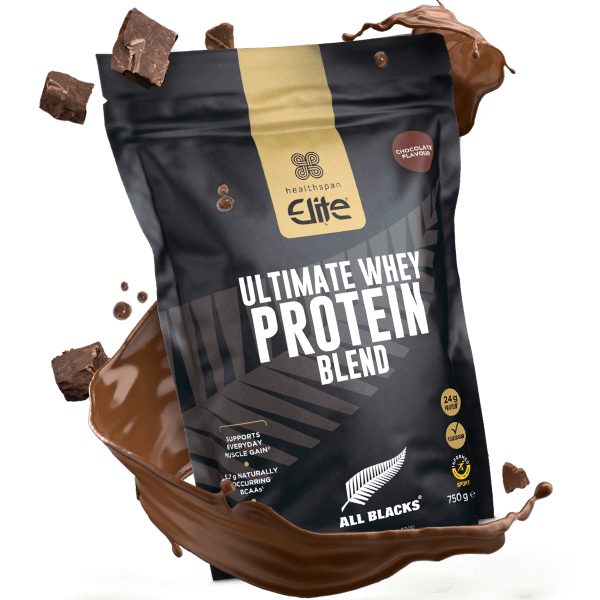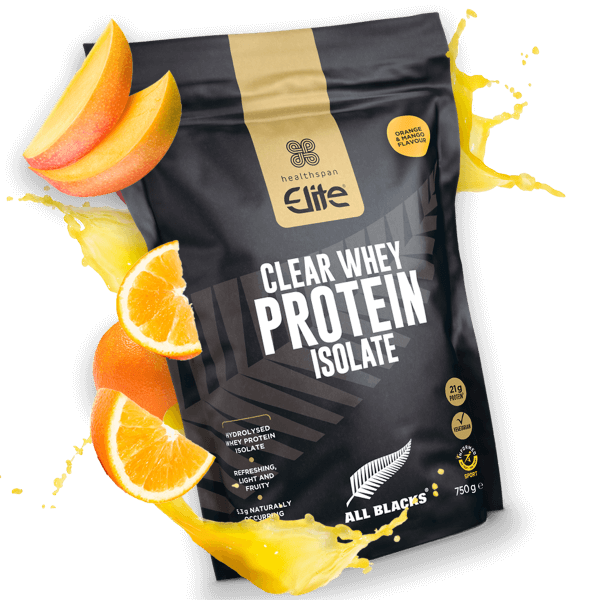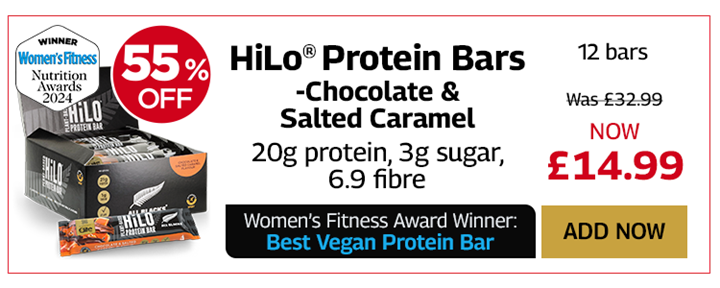Your guide to what whey protein is, where you can get it and how it can help your performance in sport and exercise.
🕒 5 min read
Whether you're a professional athlete, an avid gym goer or a fan of endurance sports, everyone needs a certain amount of protein in their diet.
If you're hoping to increase your protein intake, a whey protein supplement – often in powder form – is a convenient and practical way to get more protein.
You shouldn't expect instant results, though. As with any supplement, protein takes time to work, and you'll also need to focus on consuming a nutritious diet around your whey protein supplements.
With the help of sports nutritionist Rob Hobson, we take a look at what whey protein is, why you might benefit from it and how to pick the best whey protein supplement.
What is whey protein?
Essentially, whey protein is a by-product of the cheese-making process.
Sports Nutritionist Rob Hobson explains: "When milk is curdled, it separates into curds (which make cheese) and liquid whey. This whey contains proteins, lactose, vitamins, minerals, and trace fats. It's then processed to produce whey protein powders."
Whey protein concentrate is the least processed form of whey protein. It contains about 70 to 80% protein by weight, with the remaining 20 to 30% being made up of fats, lactose (milk sugar), and some minerals.
"It's commonly used in general protein supplements due to its lower cost and balanced composition," says Hobson.
As for the difference between whey protein concentrate and whey protein isolate, Hobson explains that whey protein isolate undergoes more processing to remove most of the fat and lactose, resulting in a product that is around 90 to 95% protein.
"It's ideal for those who are lactose-intolerant or looking for a purer protein with minimal carbs or fat," he says.
The key difference lies in their processing and purity, with isolate being purer but often more expensive. Hydrolysed protein isolate, meanwhile, goes through a further processing stage to make it easier to absorb in the body.

All Blacks Ultimate Whey Protein Blend
Protein powder co-created with the All Blacks
- 24g protein per serving to support muscle growth
- Added protease to break down protein for better absorption
- Available in vanilla, strawberry and chocolate. Low in sugar
How could whey protein support my goals?
Whey protein isn't something you have to take, but it can help support your various health and fitness goals.
Different goals may require different types of whey protein. If you're hoping to build muscle protein, alongside a resistance training program, is a must.
When you eat protein, your body breaks it down into amino acids, which help to build and repair muscles, such as after a workout.
Hobson says: "Whey protein concentrate (WPC) and whey isolate (WPI) are both effective for muscle building due to their high levels of Branched Chain Amino Acids (BCAAs), especially leucine, which triggers muscle protein synthesis."
BCAAS, which are leucine, isoleucine, and valine, must come from food as the body can't produce them itself.
He adds: "Whey isolate might be slightly better for muscle growth, particularly for people looking for a purer protein source with minimal fats and carbs. It gets absorbed faster and can be more effective post-workout for immediate recovery."
If you're hoping to lose fat while maintaining lean muscle, Hobson says that whey isolate may be the better option, due to containing less fat and carbohydrate.
"This will help reduce your calorie intake while ensuring sufficient protein to maintain muscle mass."
How should I take whey protein?
Typically, whey protein comes in powder form and is mixed with water or milk or added to a smoothie.
Generally, a tub or packet of whey protein powder will come with a scoop and one or two of these scoops, depending on the supplement's instructions, will equate to a portion of whey protein.
Healthspan Elite All Blacks Ultimate Whey Protein Blend suggests one level scoop of powder mixed with 250 ml of water (or other liquid) to achieve 24 g of protein.
There's no harm in taking different protein powders mixed together; the only downside is that you can't be certain how much protein you're getting, as different brands may have slightly different amounts.
Although there are various flavours of whey protein available, you may prefer to take unflavoured whey protein and mix it with fruits or nut butters to create your own flavour. Unflavoured whey protein also works well in coffee, for example.

All Blacks Clear Whey Protein Isolate
Clear, refreshing and light hydrolysed whey isolate
- Innovative alternative to traditional protein powders that doesn't require milk
- Refreshing, light and fruity alternative to traditional whey
- 21g hydrolysed whey protein isolate per serving
You can also find whey protein in bars and pre-made shakes.
How much whey protein should I take?
Hobson says: "It's safe to consume whey protein once or twice daily. The best approach is always food-first, so I'd recommend getting the protein you need mostly from food and topping up with a shake for convenience. This will ensure you are getting plenty of other nutrients in your diet at the same time."
People with very high protein needs (over 2g per kg of bodyweight) may need to rely more heavily on shakes. Examples include athletes engaged in strength and power sports, or boxers during their cutting phase.
What should I look for when buying whey protein?
There are a few things to consider when buying whey protein powder. Firstly, it's important to check the label for the percentage of protein per serving. "Ideally, a good whey protein concentrate should have around 70 to 80% protein per serving, and whey isolate should have 90 to 95% protein," says Hobson.
He adds: "Look for a product rich in BCAAs, especially leucine, and avoid products with excessive fillers, artificial colours, or sweeteners. A cleaner product with minimal ingredients is often better."
You might also want to check for certifications like Informed Sport, which indicates that the product has been batch-tested for purity, potency, and substances banned for competing athletes. Healthspan Elite whey protein powders are Informed Sport-accredited.
What are the potential side effects of whey protein?
Whey protein isn't for everyone, and it could cause digestive issues in some people.
"Some individuals may experience bloating and gas, particularly if they are lactose-intolerant, although whey isolate is less likely to cause this due to its low lactose content," says Hobson.
If you do find lactose to be a problem, you could try a vegan protein powder, as this will contain protein typically from plant-based sources.









